
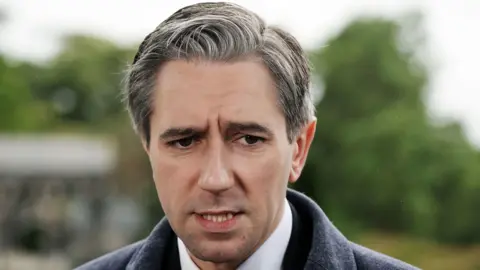 PA Media
PA Media
This will be the first major electoral test for the Fine Gael leader
When a politician insists they are not planning to call an election, it is best practice not to believe them.
Simon Harris is now among that rank of party leaders.
Having claimed for months that he wanted his government to serve its full term into next year, the temptation of positive polls has clearly proved too much.
In October the three parties of government agreed that the general election would take place this year - yesterday Harris officially called the election and asked the President Higgins to dissolve the Dáil.
But while this is the first major electoral test for the Fine Gael leader, for his political opponents there is just as much at stake.

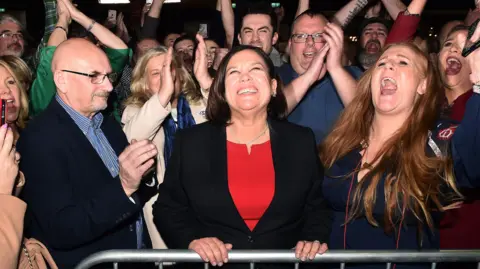 Getty Images
Getty Images
Sinn Féin surprised political rivals when they won 37 seats at the last general election four years ago
At the last general election four years ago, Sinn Féin - the main opposition party in the Republic - surprised political rivals and pundits alike when they made significant gains, winning 37 seats and securing the most first preference votes of any party.
It marked a break with the two-party governing system, traditionally dominated by Fine Gael and Fianna Fáil, signalling a huge shift in support for the all-island party.
Senior party members acknowledged their tactics had been too cautious and could have won more seats if they had run more candidates.
They declared victory even though the larger parties refused to enter government with them, and insisted next time round that party president Mary Lou McDonald would be elected as the first female taoiseach (Irish prime minister).
But this time, there is little to no expectation of the party managing a repeat performance.

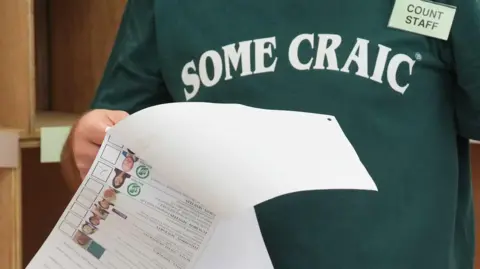 PA Media
PA Media
Sinn Féin suffered recent losses at the local elections and in the European elections
The first sign that all was not well came in the form of disappointing local government and European election results over the summer.
Sinn Féin put the losses and drop in opinion polls down to a range of factors and insisted it would ""regroup" ahead of the general election, but time to do that has been much shorter than it would have liked.
There is also additional pressure on the party after it was revealed that two press officers provided references for a former party employee who was being investigated by police for child sex offences. They have since resigned.
Then, in October, it emerged that Sinn Féin senator Niall Ó Donnghaile had not quit the party in December 2023 due to health reasons as the party had said.
Mr Ó Donnghaile had been suspended from the party months earlier for sending inappropriate texts to a teenager.
McDonald had to answer questions in the Dáil over the party's handling of the issue.

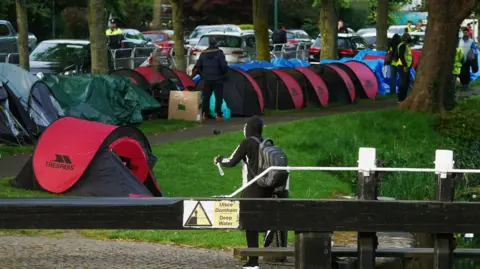 PA Media
PA Media
Recent polling suggested that housing and immigration are major issues for voters
An issue that has also proved tricky for Sinn Féin and other parties is failing to spell out how to manage immigration.
It has become a major social and political issue in Ireland after the country accepted a large number of Ukrainian refugees, alongside an increase in other sources of immigration.
Between March and December 2022 almost 68,000 people arrived in Ireland from Ukraine under the EU’s temporary protection directive.
That sudden and unprecedented influx placed significant pressure on Irish state resources with the government having to take measures such as temporarily housing people in tents.
Ireland’s government was already struggling with a housing crisis before the increase in immigration.
Right-wing protesters have held a series of demonstrations at asylum accommodation centres and some buildings earmarked for asylum seekers have been burnt down.
Recent polling suggested that housing and immigration are major issues for voters - a fact that will not go unnoticed by the parties but one they will all struggle with.
Bonanza budget
As for Fine Gael, Simon Harris goes into this election hoping for stronger results than his predecessor Leo Varadkar managed in 2020, when the party lost 15 seats.
Unable to form a government by itself, it sought to form a coalition government with Fianna Fáil and the Green Party - an agreement that took four months to negotiate.
There is no doubt Fine Gael has felt a bounce with Harris stepping into the top job.
He still faces a challenge to prove to voters that his party should continue to govern after almost two decades, but having thrown the electorate a bonanza budget with extra cash for lots of sectors, hope is high in the party that it will see an improved performance.

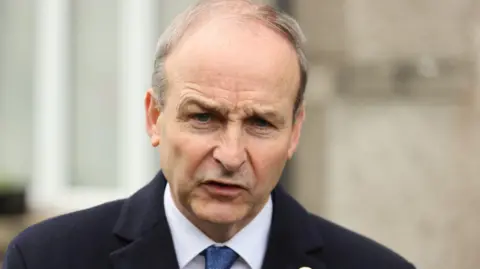 PA Media
PA Media
Micheál Martin has led Fianna Fáil for 13 years
When it comes to Fianna Fáil, its leader Micheál Martin has spent the last four years rotating through the top two jobs in elected politics.
First as taoiseach, taking over from Leo Varadkar for the first half of the term as part of the coalition arrangements, before becoming Tánaiste (Irish deputy prime minister) and Ireland's foreign affairs minister in 2022 - a role that has seen him heavily engaged in political events north of the border too.
His party narrowly won the most seats in 2020, pipping Sinn Féin’s 37 seats with just one more.
Recent polls have shown the party sitting on about 20%.
Whether the party does better than last time or struggles against Fine Gael will determine how Fianna Fáil views Micheál Martin’s future as leader, after 13 years in the job.
The success of independent candidates and some of the smaller parties in the recent council elections is a factor that could back come into play this time.
Elections always bring twists and turns, soundbites from candidates who come to regret them and sometimes, a moment that truly shifts the dial.
The Republic of Ireland is now set to see all that as the campaign machine grinds into gear once more.

 1 month ago
7
1 month ago
7

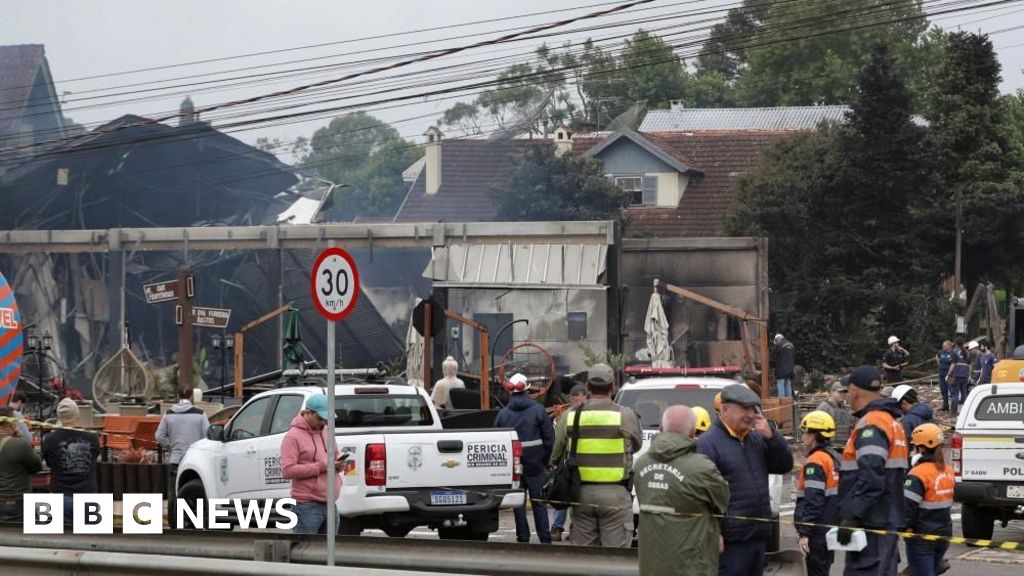








 English (US) ·
English (US) ·